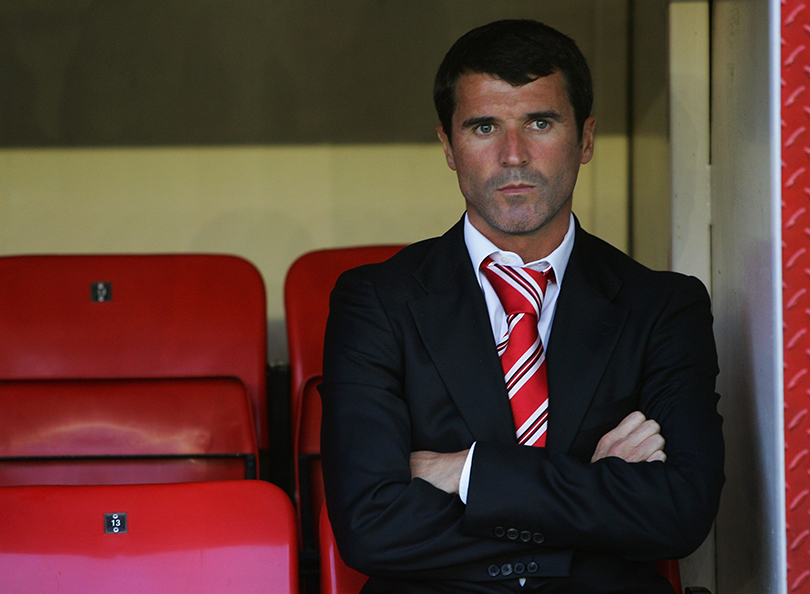'It was like being in Big Brother, you never felt comfortable, it was a bit of an issue for us': The inside story of Sunderland, Netflix and the streaming drama that ended happily ever after
After a fall captured in all its miserable detail by Sunderland ’Til I Die, the Black Cats are back in the top tier – FFT looks back on an epic journey, aided by the documentary’s stars
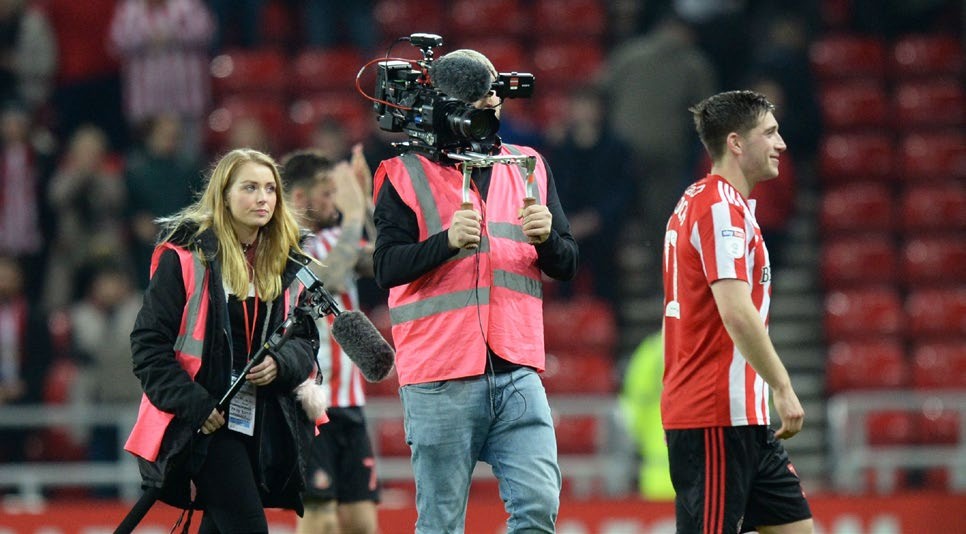
The best features, fun and footballing quizzes, straight to your inbox every week.
You are now subscribed
Your newsletter sign-up was successful
Want to add more newsletters?

Five times a week
FourFourTwo Daily
Fantastic football content straight to your inbox! From the latest transfer news, quizzes, videos, features and interviews with the biggest names in the game, plus lots more.

Once a week
...And it’s LIVE!
Sign up to our FREE live football newsletter, tracking all of the biggest games available to watch on the device of your choice. Never miss a kick-off!
Join the club
Get full access to premium articles, exclusive features and a growing list of member rewards.
Rarely have two points been such cause for celebration.
Come the end of the 2015-16 Premier League campaign, that was all that would separate Sam Allardyce’s Sunderland, in 17th, from relegated rivals Newcastle United.
“There’s no better feeling,” lifelong Mackem and host of the Roker Report podcast, Gavin Henderson, tells FFT.
“Big Sam came in that year and saved us, while they went down. Still, it hadn’t been a good season.”
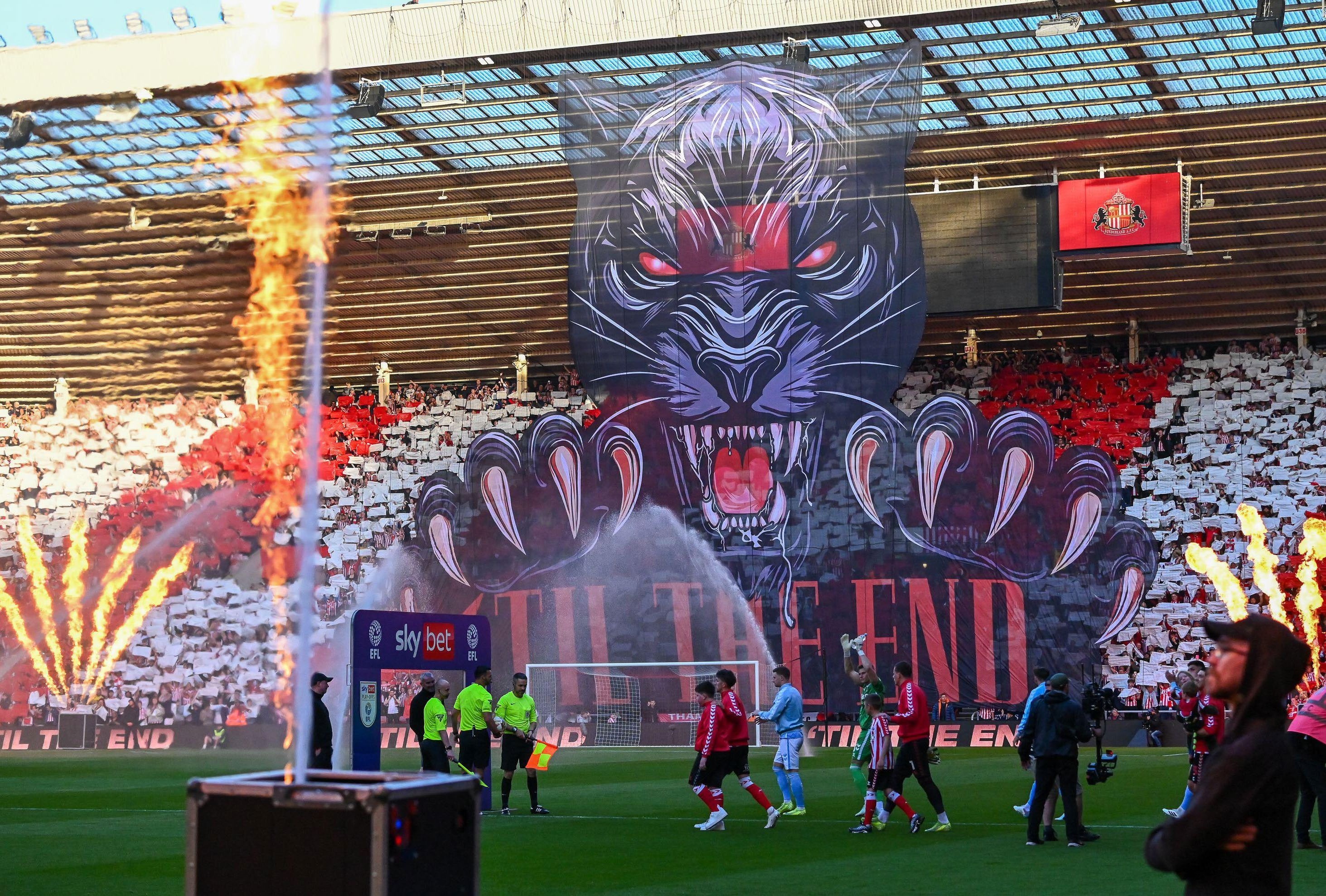
Fans were used to it by then, having finished 16th, 14th and 17th over the previous three campaigns.
Years of scattergun spending under a string of managers left a once-proud institution with an ageing, bloated squad and huge debts.
To make matters worse, Allardyce was lured away by England that summer – and his replacement, David Moyes, didn’t sugar-coat things.
“He was saying as early as August that we were facing a relegation dogfight,” recalls former defender Gary Bennett, who appeared over 400 times for the Black Cats from 1984 to 1995. “That set the tone for a dreadful campaign.”
Despite a 34-year-old Jermain Defoe’s 15-goal haul, the Mackems’ decade-long Premier League stay came to an end in 2016-17 as they finished bottom and 16 points from safety.
Moyes resigned. “That whole season was depressing,” recalls Henderson.
“That was our fifth relegation battle in a row, and there was clearly something rotten. I still tried to see it as a chance to hit the reset button and come back up refreshed.”
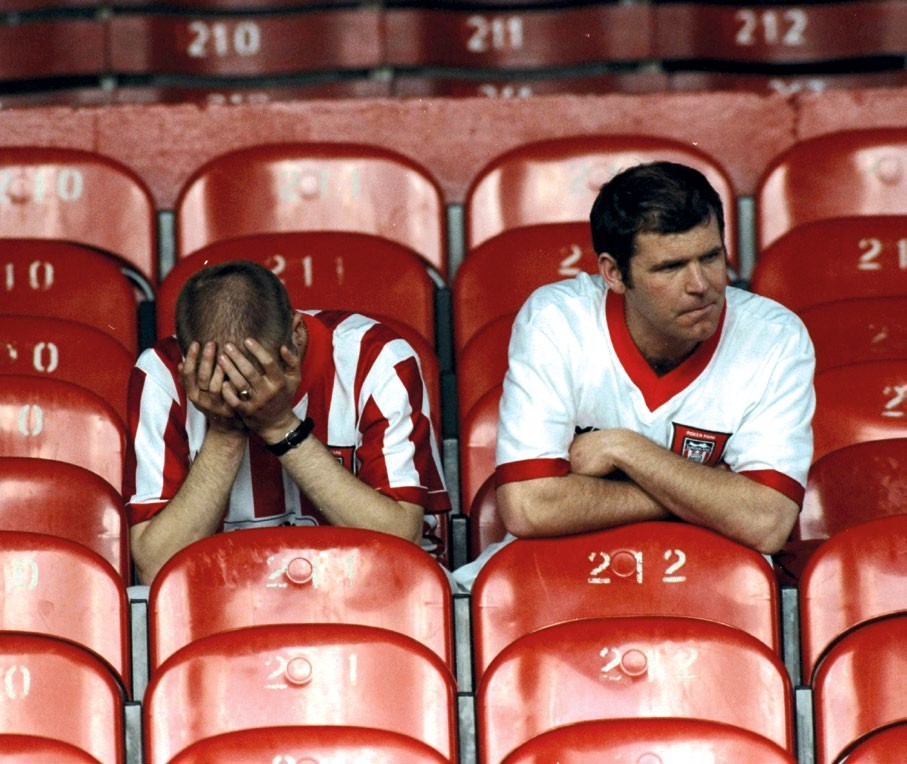
The summer of 2017 saw the squad stripped bare, with experienced heads like Defoe, Sebastian Larsson, Steven Pienaar and Joleon Lescott allowed to leave, while Jordan Pickford’s £30 million switch to Everton helped raise funds.
Still, there was little for incoming boss Simon Grayson to work with.
“You always know there’s going to be a hangover at a relegated side, but I underestimated it,” Grayson tells FFT now.
“The club sold or loaned off a large number of players, raising almost £40m, but there was still no money to spend. We brought in 10 or so new faces for around a combined £1m.”
The best features, fun and footballing quizzes, straight to your inbox every week.
Grayson quickly discovered that many of those inherited from Moyes would be little use. “They thought they were too good for that level,” he recalls.
“Players told me directly that they didn’t want to be there. They were going through the motions during pre-season, hoping their agents could sort a move away.”
That sentiment was laid bare on the back of a 5-0 friendly defeat to Celtic, when midfielder Darron Gibson was filmed ranting in a nightclub. “We’re f**king s**t,” he told a group of fans, who didn’t argue.
If supporters were upset with the Irishman, it was nothing compared to the ire reserved for fellow midfielder Jack Rodwell.
The former Everton and Manchester City man was reportedly still on £70,000 per week in the second tier, having had no relegation clause in the terms of his contract.
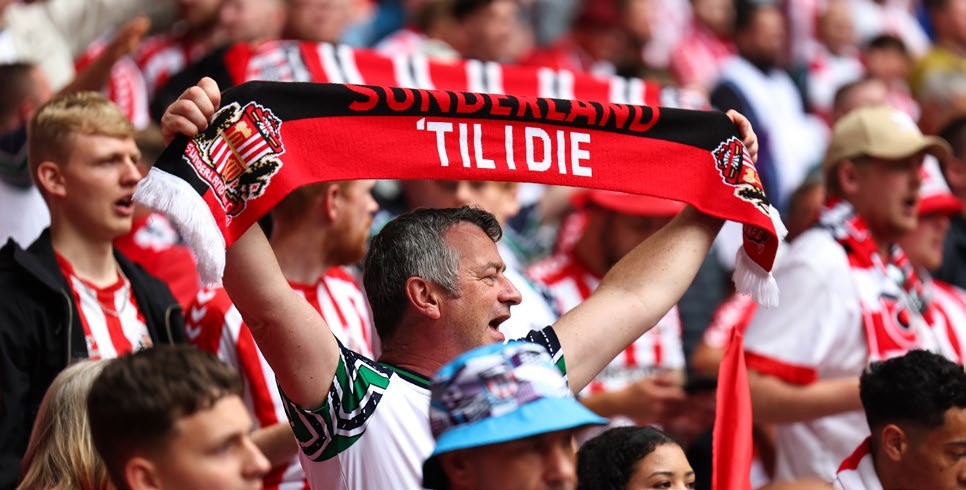
The club desperately sought to sell, with Rodwell claiming they attempted to force him to leave, making him train with the reserve team.
“I thought, ‘Why not just rip your contract up and help the club out?’” recalls Henderson.
“But as time’s gone on, I’ve learned to see things from his perspective. He’d have been crazy to walk away from that salary.”
Furthermore, the club’s owner for the previous 10 years, Ellis Short, made no secret of his plans to sell up at the first opportunity.
“All of those things made the atmosphere quite toxic,” Grayson says. “There was negativity towards the players, negativity towards the owner. It wasn’t conducive to success.”
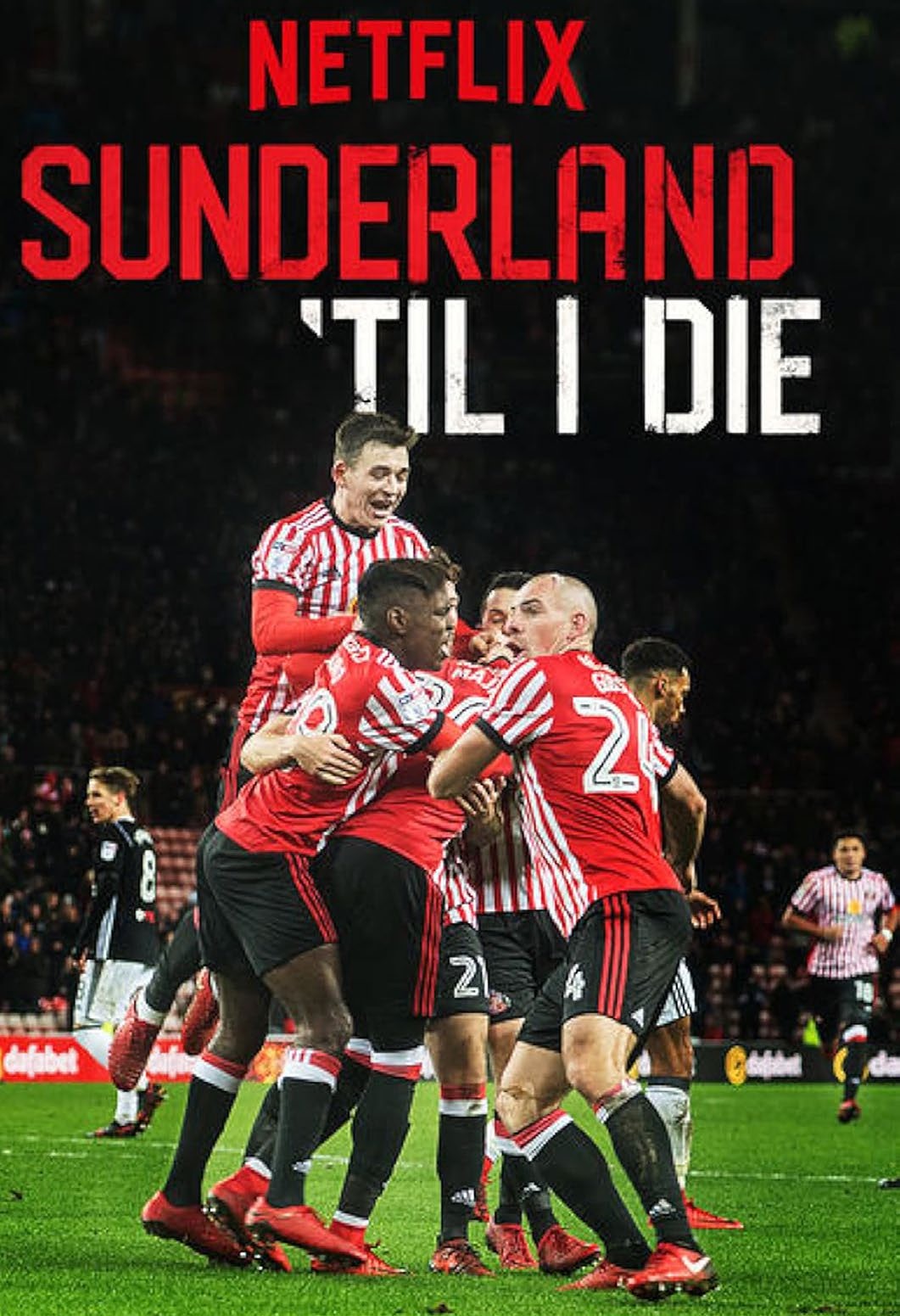
To top it all off, those dramas were played out on new behind-the-scenes Netflix documentary series Sunderland ’Til I Die (STID).
The filmmakers were granted unprecedented access, with Grayson and his players contractually obliged to take part in interviews.
“It was strange,” former Black Cats skipper George Honeyman told FFT after departing the club in 2019.
“It was like being in Big Brother. You never feel that comfortable about being taped 24/7, which was a bit of an issue for us.”
The documentary’s wider focus on club staff and the community combined to paint a bleak picture.
“In a bizarre way I enjoyed the series as it gave everyone a remarkable insight into Sunderland,” adds former player Bennett.
“You didn’t have to be a football fan to get hooked on it. I know it was hugely popular in the United States, too.”
WARTS AND ALL
Sunderland ’Til I Die offered a fascinating peek behind the curtain of football – as did these documentaries…
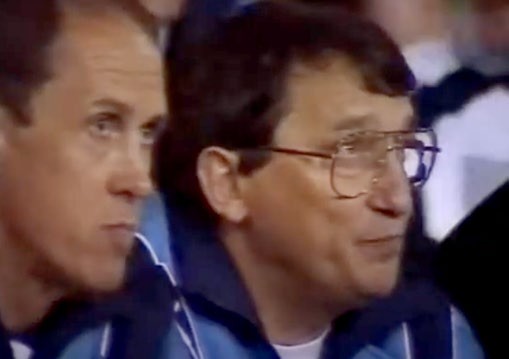
AN IMPOSSIBLE JOB
England have only failed to qualify for one World Cup in 44 years – sadly for Graham Taylor, it was all caught on camera in 1993. After Taylor’s direct “Can we not knock it?” tactics failed in Oslo, he was left to bemoan, “Do I not like that” in Rotterdam. “The referee’s got me the sack,” he told the linesman.
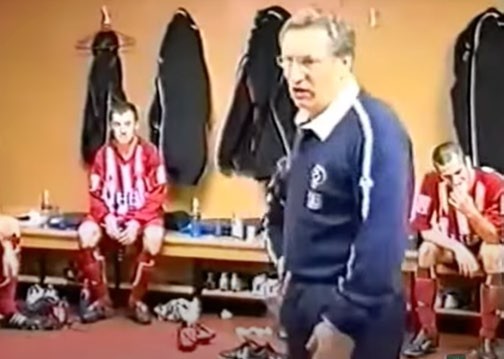
WARNOCK
Sporting greats need only their surname to title their biopic: Ali, Senna and, of course, Warnock. Documenting Sheffield United’s 2004-05 campaign, sweary Colin opined, “You’ve got to f**king die for three points!” and, “By all means enjoy it, but enjoy it by being f**king disciplined.”
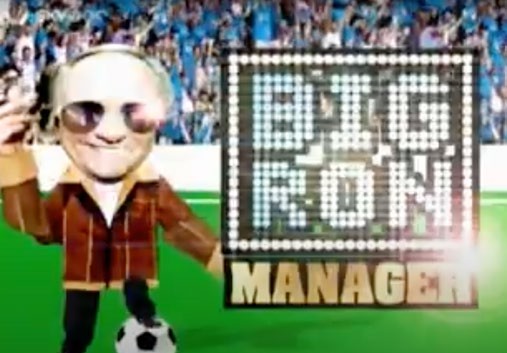
BIG RON MANAGER
Ron Atkinson was brought in to help out at Peterborough in 2006 – manager Steve Bleasdale wasn’t impressed. Struggling to win over players, Bleasdale took umbrage as chairman Barry Fry picked the team against Macclesfield, and resigned in front of the players an hour before kick-off.
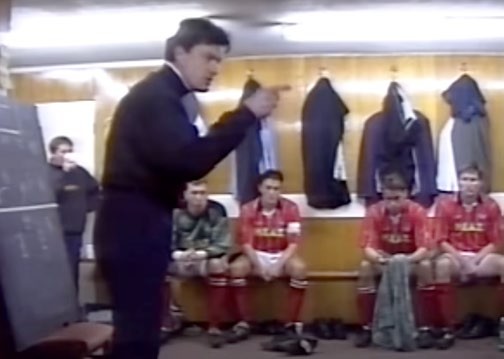
CLUB FOR A FIVER
Absolutely no-one can top Leyton Orient boss John Sitton’s explosive rant at his own players, as they trailed Sam Allardyce’s Blackpool at half-time in February 1995. “You can pair up if you like, and you can f**king pick someone else to help you, and you can bring your f**king dinner!” Profound.
Indeed, watching STID inspired Rob McElhenney to join forces with Ryan Reynolds, purchase Wrexham and make their own TV series.
But while Welcome to Wrexham has plotted a club’s rise from non-league misery to well-oiled Championship machine, the story at Sunderland wasn’t nearly as smooth.
“People expected a feelgood story of promotion,” laments Grayson, who did his best to shield players and limit camera access.
“They ended up getting something very different.”
The season started with one win in 15 games, culminating in Grayson’s sacking in late October with the club in the drop zone. In came Chris Coleman, who’d masterminded Wales’ run to the semi-finals of Euro 2016.
Possibly his greatest contribution to the documentary was confronting a fan who called him a “prick” outside the stadium. “You calling me a prick? I’m a married man with six kids,” was his slightly puzzling response.
He lasted just five months, relieved of his duties after the Black Cats’ second straight relegation was confirmed.
“PLAY DJ TIESTO…”
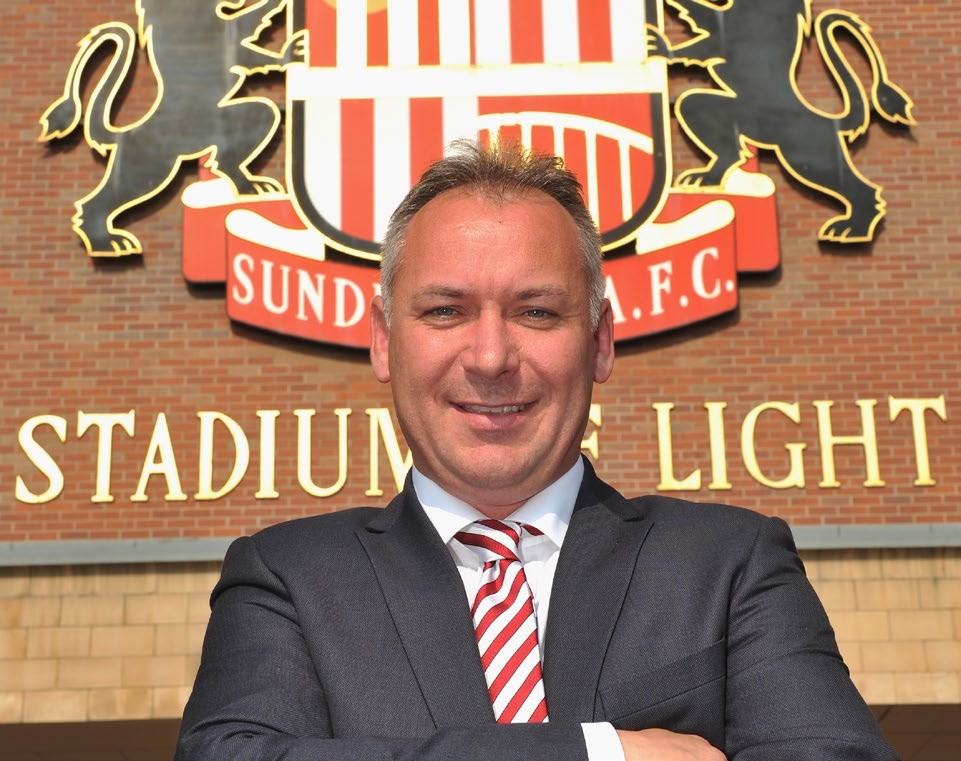
Short’s sale of the club soon afterwards provided a small silver lining.
In came insurance magnate Stewart Donald, backed by Juan Sartori and PR guru Charlie Methven.
“Most of the potential buyers took one look at the financial issues before running a mile,” Methven tells FFT.
“We felt that if we could come in, get things into some kind of shape, it could be a smart piece of business.”
Asked if the consortium were initially aware about STID, a documentary that he would come to star in, Methven gets a bit defensive.
“You’re obviously very obsessed with talking about that, then,” he says, seemingly rather weary of being remembered by many for his appearances in it.
“The series is totally incidental if you’re serious about football.
“I know you write for ‘punters’, so it’s a different thing, but for us it was a tiny smidgeon in the story of a club that was around £200m in debt and losing tens of millions a year.”
“It was like being in Big Brother. You never feel that comfortable about being taped 24/7”
The consortium’s task was to prepare the club for League One while bringing down costs.
“It was still functioning as if it was a Premier League outfit, despite being in the third tier,” reveals Methven.
“We said, ‘Do we really need to have three chauffeurs and a cryochamber costing £100,000 per year, that nobody is actually using?’
In some ways, it was quite reassuring because at least there was some low-hanging fruit.”
There was more relief when a number of the high earners moved on, including Rodwell and then-record signing Didier Ndong, who’d cost the club £13.6m in 2016, only to go AWOL after failing to get a move away following the second relegation.
“It was imperative to finally get characters like that gone,” says Henderson, who was thrilled to see the midfielder sacked and ordered to repay the club more than £3m.
Unfortunately, not all of the cuts were as satisfying. “We had to say goodbye to loyal, hard-working staff,” Methven says.
“We didn’t take those decisions lightly. But the parachute payments were due to run out in two years’ time, and we had little choice.”
As newly appointed manager, Jack Ross began preparing his hodgepodge squad for the season ahead, Donald and Methven were looking to ingratiate themselves with the club’s fanbase.
One scheme saw supporters invited to help replace almost 30,000 faded red seats at the Stadium of Light – more than 3,500 fans joined in.

Another was to change the players’ pre-game walk-out music.
One of the more memorable scenes from STID showed Methven, surrounded by bemused staff members in his office, playing tunes through his laptop.
After insisting that the club’s usual music, Sergei Prokofiev’s classical piece Dance of the Knights, was a thing of the past, he instead pushed for Dutch DJ Tiesto’s Adagio for Strings.
One employee sniffed that it would make no difference unless they invested in a new PA system so fans could actually hear the music either way.
Netflix’s YouTube channel titles the scene “Accidental David Brent”, suggesting at least one reason Methven isn’t keen to speak about the series.
Methven’s efforts were key, however, in securing the largest ever League One attendance, when 46,039 saw them beat Bradford on Boxing Day 2018, with the team sat third in the table.
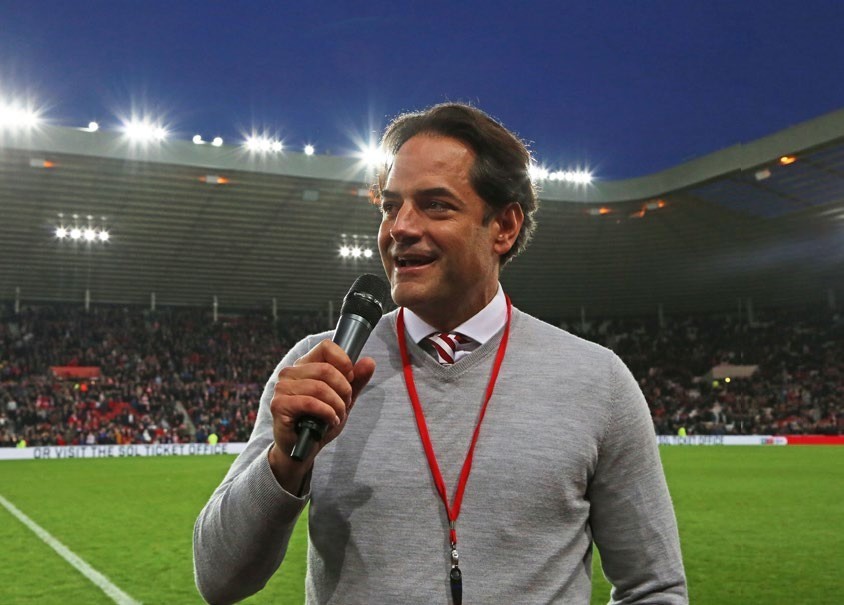
“The fans really bought into Donald and Methven at the start, and there was a feeling of optimism,” admits podcaster Henderson.
“They were more open and transparent with the fans, and put loads of effort into galvanising fans. We were winning games and the performances from our academy talents were encouraging.”
Young striker Josh Maja had scored 15 league goals by late January, only to engineer a move to Bordeaux with his contract winding down.
“Donald bullishly promised a new goalscorer,” Henderson says.
“Fans were happy to hear that, but he backed himself into a corner.”
When a £1.25m bid for Will Grigg was rejected by Wigan, manager Ross and others advised Donald to go no higher.
As the clock ticked down, the owner appeared to panic and pay £3m, with a further £1m of potential add-ons.
“We were laughing stocks when that episode came out, 18 months later, but I was buzzing about it at the time,” recalls Henderson.
“It was a massive gamble that didn’t pay off, with hindsight.”
Grigg scored four goals in the second half of the League One campaign, as the club finished fifth before suffering defeat to Charlton in the play-off final.
His entire career at Sunderland? Eight goals in 62 games: roughly £375,000 per strike.
“Things became pretty toxic,” reveals Henderson. “Fans were outraged that we’d slipped away from the automatic promotion places.”
“The scenes before the play-off final – the pride, the passion – were jaw-dropping”
The heartache wasn’t over, not helped by the pandemic.
“Sunderland suffered more than any other club during COVID, from a financial perspective,” Methven says.
“Our ticket sales made the biggest proportion of income of any club in the country.
"To have gone through all the cost-cutting measures we did, only to be confronted by this uncontrollable event, it just felt bloody unfair.”
Future Wrexham gaffer Phil Parkinson – a serial promotion winner before and after his time at the Stadium of Light – led the club to their lowest ever finish of eighth in League One in 2020.
A year later, successor Lee Johnson lost to Lincoln in a play-off semi-final.
“Those seasons just felt like Groundhog Day to supporters,” adds Henderson. “It felt as if it was never going to be our year.”
THE PERFECT ENDING
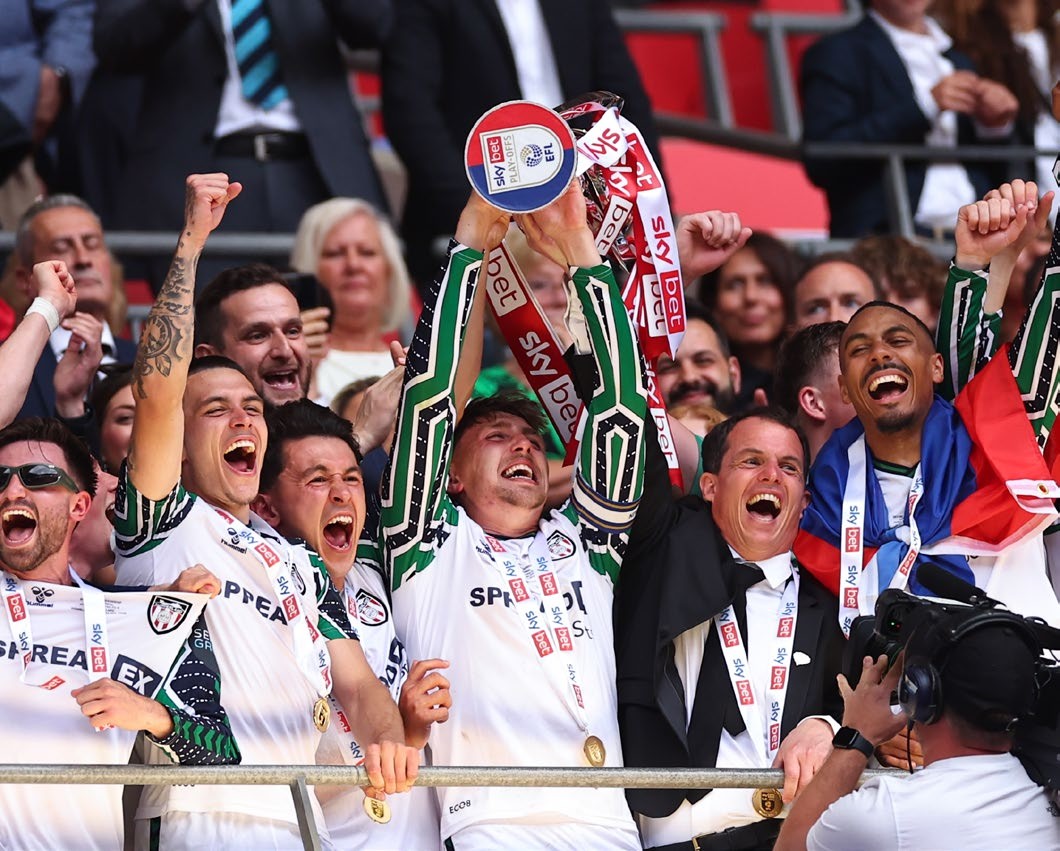
The Black Cats would win the 2021 EFL Trophy, though – a first Wembley victory since the 1973 FA Cup Final, breaking a run of eight straight defeats.
A month earlier, a 41 per cent stake in the club had been sold to Kyril Louis-Dreyfus, a Swiss-French businessman aged 23, son of former Marseille owner Robert.
“Stuart and I had started to feel that it was time to hand over the reins,” recalls Methven, who went on to have a largely successful spell as the CEO of Charlton.
“A lot of the nasty work had been done in getting the finances in check and the pandemic storm had been weathered, so we invited Kyril to take over, initially as a minority shareholder, before he later bought us out.”
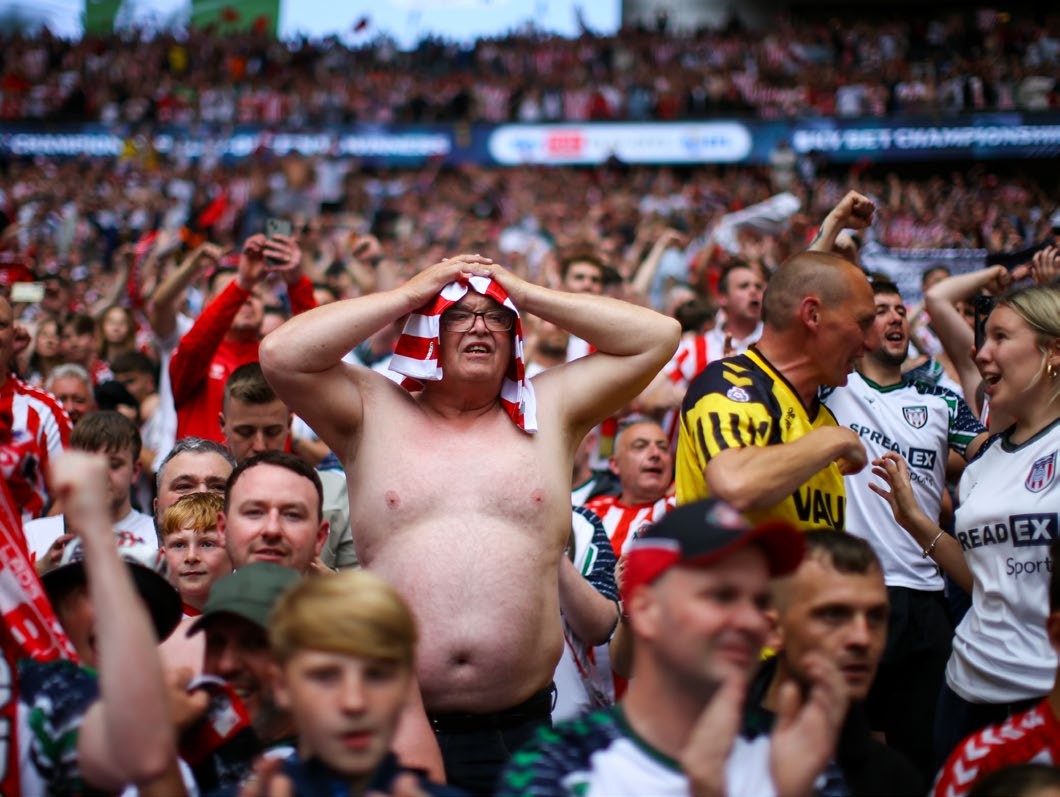
Sunderland made a strong start to the 2021-22 season, only to begin to slip behind their rivals in mid-season.
After a 6-0 shellacking away to Bolton in late January, Johnson was replaced in the dugout by Alex Neil, who led the side to a fifth-place finish and promotion via the play-offs, at long last, after victory over Wycombe.
“Louis-Dreyfus was key to that,” Henderson says. “He got that managerial call right – the first of many things that he got right, as we started to focus more on bringing in young talents as opposed to quick fixes.”
Sunderland were finally back in the Championship after four years away.
But Neil jumped ship to Stoke, before Tony Mowbray guided the Black Cats to an unexpected sixth-place finish, beaten in the play-off semis by Luton.
Despite the arrival of Jobe Bellingham in that summer’s window, the wheels fell off in 2023-24 – Sunderland finished 16th with Mowbray, Michael Beale and Mike Dodds all having stints in charge.
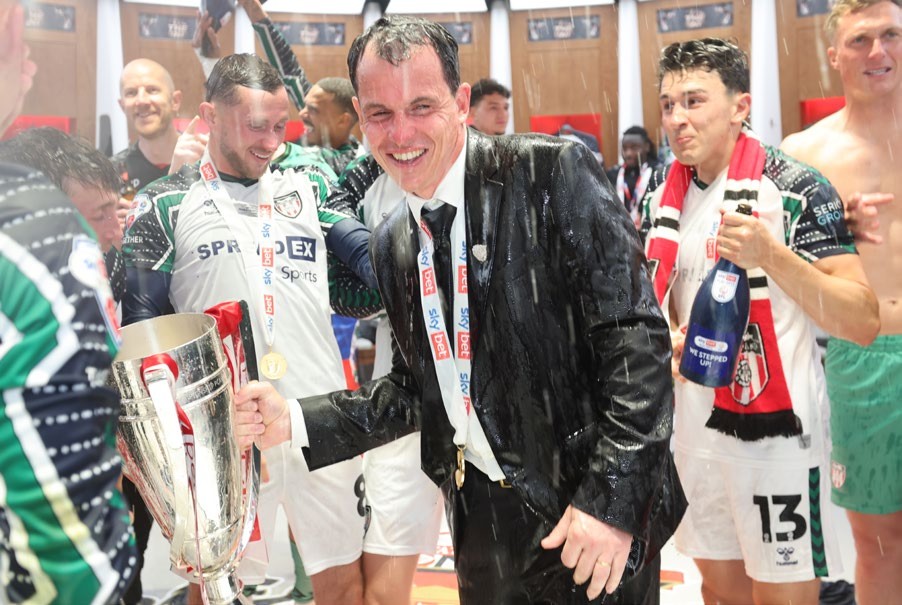
Fans didn’t know what to expect last season with the appointment of French boss Regis Le Bris.
“Nobody knew who he was,” says Bennett of the ex-Lorient gaffer.
Le Bris oversaw the youngest side in the Championship, as they started the campaign quickly.
“He won his first four league games,” Bennett adds. “Suddenly, everyone was on board and the club were applauded for making such an inspirational choice.”
“The style wasn’t particularly dazzling,” says Henderson of a side that was only mid-table for possession stats.
“But we were extremely disciplined. Bellingham played with such maturity and energy, Eliezer Mayenda was a lethal attacking threat at 19, Chris Rigg played almost every game in midfield despite being only 17.
Le Bris had them playing like experienced heads. Then the older guys such as Luke O’Nien were immense.”
The Black Cats were top in November before dropping to fourth, then losing all five of their last regular-season fixtures.
At home to Frank Lampard’s Coventry in the second leg of the play-off semi, centre-back Dan Ballard headed home a 122nd-minute corner to seal a place in the final.
“It’s the best feeling I’ve ever had in a football stadium,” beams Henderson. “We took that energy down to Wembley with us.”
Despite going in as underdogs against Sheffield United, the Mackems were full of confidence.
"When we did bump into Sheffield United fans, they seemed nervous. It just felt as if everything was written for us to win it.”
“The scenes at Trafalgar Square the night before the final, the pride and passion, were jaw-dropping,” Bennett glows.
“We completely took over the city,” adds Henderson. “On Wembley Way, it was all Sunderland.
"When we did bump into Sheffield United fans, they seemed nervous. It just felt as if everything was written for us to win it.”
The Blades took an early lead, but the Sunderland support grew louder.
“All season, Le Bris had been making smart substitutions in big moments,” says Henderson.
“As the second half ticked down, he started throwing on more attacking players.”
The gamble paid off when Mayenda equalised. “You could see the energy drained out of Sheffield United,” says Henderson.
“Even still, nobody expected what happened next.”
In the 95th minute, 19-year-old Tom Watson, who’d already agreed to join Brighton this summer in a £10m deal, advanced forward, before curling a low shot inside the post.
Cue utter bedlam. “I’ve been involved in football all my life, and the noise that greeted that goal is the loudest I’ve ever heard,” says Bennett.
“Post-game, hearing the masses sing ‘Wise Men Say’ with the players was hugely emotional. It puts hairs on the back of my neck.”
The adapted version of Elvis Presley’s Can’t Help Falling In Love was quite a moment.
“Netflix must have been kicking themselves for missing that,” laughs Henderson of the documentary that stopped at three series. “It would have been the perfect end.”

But the hard work isn’t finished yet.
Over the past two seasons, all six newly promoted sides have been relegated at the first time of asking.
Watson and Bellingham have moved on – the latter following his brother Jude’s footsteps by joining Dortmund.
Star midfielder Enzo Le Fee has made his loan permanent however, having arrived from Roma in January, while recruits include £30m Habib Diarra and £15m Noah Sadiki.
Optimism abounds ahead of the Black Cats’ opening game at home to West Ham. “I know everyone and their dog are tipping us for relegation, and I can understand why,” says Bennett.
“But proving the doubters wrong is what life is all about. We’ve likely got one of the youngest squads of all four divisions. The doubters talk about inexperience – I prefer to call it potential.”
“We can stay up,” adds Henderson. “We’re now debt-free again, we have an ambitious young owner, hungry players, a brilliant captain in Luke O’Nien and the most passionate fanbase in the world. Coming to the Stadium of Light won’t be fun for anyone.”
Least of all for neighbours Newcastle in mid-December.
“Tyne-Wear derbies are massive,” Henderson says. “We’re relishing taking them on.”
Should the worst happen, and Sunderland go back down, there won’t be any tears this time around.
“We weren’t even expecting to be here, so we’ll give it our best shot and stick together,” adds the Black Cats fan.
“It isn’t like we haven’t been through the wringer before. Whatever happens, it’ll be dramatic.”
We don’t doubt that for a moment.
Popcorn at the ready…
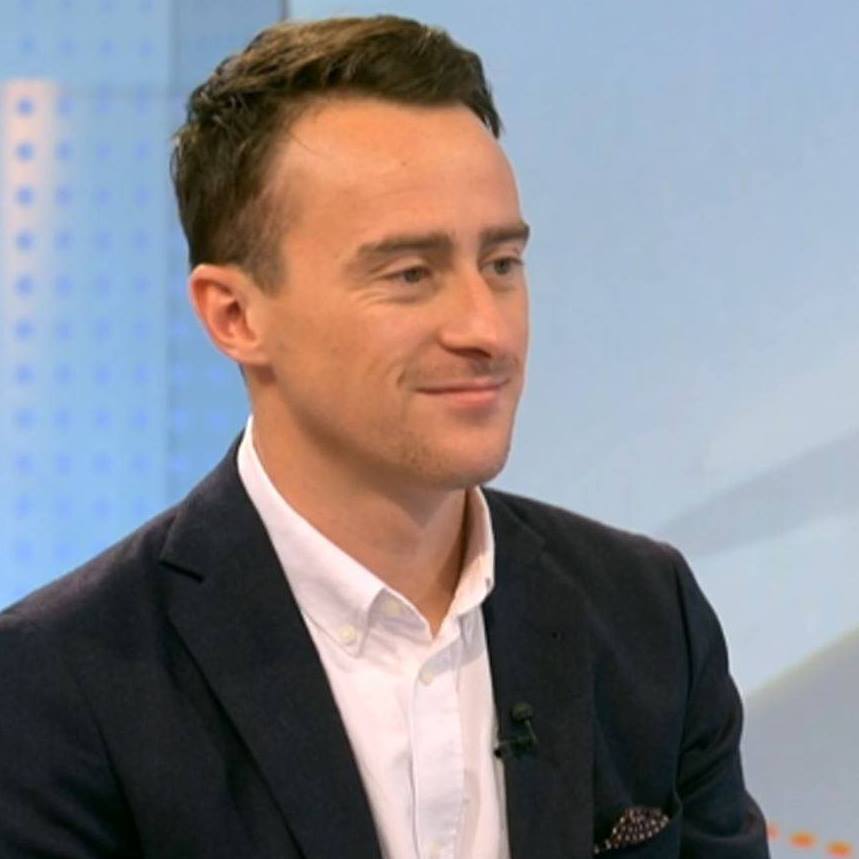
Ed is a staff writer at FourFourTwo, working across the magazine and website. A German speaker, he’s been working as a football reporter in Berlin since 2015, predominantly covering the Bundesliga and Germany's national team. Favourite FFT features include an exclusive interview with Jude Bellingham following the youngster’s move to Borussia Dortmund in 2020, a history of the Berlin Derby since the fall of the Wall and a celebration of Kevin Keegan’s playing career.
You must confirm your public display name before commenting
Please logout and then login again, you will then be prompted to enter your display name.
 Join The Club
Join The Club










